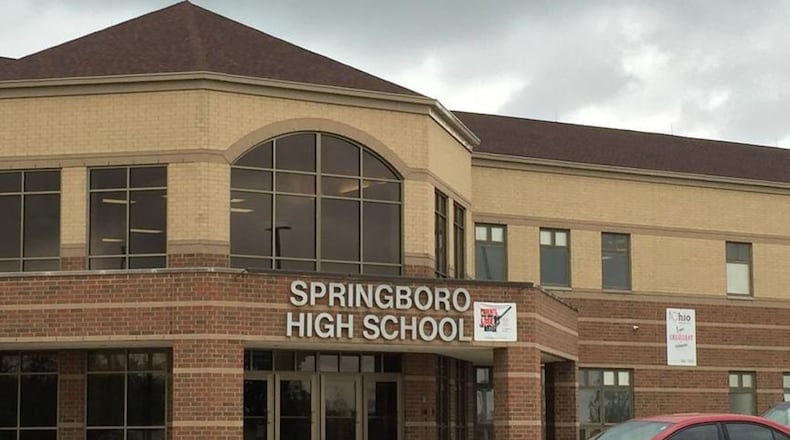Superintendent Larry Hook said the proposed 2-mill levy would generate about $3 million a year that can only be used for permanent improvements lasting five years or more to school facilities as well as for capital purchases such as school buses.
“We have identified more than $30 million in facility needs that need to be done in the next 10 years,” Hook said. “These are ‘needs,’ not ‘wants.’”
Hook said the levy funding would be used for major projects such as replacing mechanical equipment such as HVAC systems, repairing some 2 million square-feet of roadways and parking lots and making safety and security enhancements to district facilities. The additional permanent improvement revenues cannot be diverted for salaries or other short-term operational needs, Hook said.
He said the district has 19 school buses that are in need of replacement that have in excess of 185,000 miles and/or been in service 12 years. School buses cost about $85,000 each.
Hook said the new levy would have a net increase of zero to property owners.
If the proposed levy is approved by voters, it would cost a property owner about $70 per $100,000 of valuation, according to Warren County Auditor Matt Nolan.
“The taxpayers won’t feel the impact of an increase as one (2-mill) levy is coming off and replaced by a new 2-mill levy,” Nolan said.
Hook said, “We want to take advantage of the 2-mill drop (off the tax duplicate) and replace it with a permanent improvement levy. Timing is everything... We need a permanent improvement fund to make an investment to keep things up. Ninety-nine percent of the repairs are high-dollar amounts.”
All capital repairs, purchases and other permanent improvements in the school district are paid directly out of the general operating fund expenditures which is about $57 million for the 2020-21 fiscal year, he said..
“If we can do this, it will be a critical pillow to stabilize district finances and not drain the general fund or hurt academics,” he said. “We want to be strategic with the general fund. We want our resources to go to the classroom.”
Hook also said approval will delay the need for an operating levy a few more years.
Scott Marshall, district spokesman, said the district has been forced to use money from its general funds to cover these costs.
“Since 2009, the district has seen an increase of 618 students. Yet, as of today, the district has 11 less teachers on staff since 2009,” Marshall said. “More students with less teachers leads to the classroom being impacted” such as larger classroom sizes, etc.
Some residents on social media who oppose the levy are concerned about not having a say periodically to approve or reject tax levies.
When resident Todd Music, whose company owns numerous residential rentals on 62 properties in Warren County, responded why he was opposed to the levy: “Simple, if a no vote is the majority then taxes decrease.”
“Additionally, to clarify and in opposition to the rhetoric being presented, a vote of no definitely decreases the tax base. There are far too many elderly, fixed lower income folks, single parents, and hourly employees in our community who do not have time or accessibility to a voice to think their silence equates to an agreed vote to maintain tax rates,” Music said.
Another resident, Ward Allen, said there are really two answers to the question.
“The first quite simply is I am not in favor of any levy, which converts a levy renewal into a permanent levy,” Allen said. “The simple act of having to come before the electorate affirms the actual need for those dollars and forces the taxing authority to justify the continuation of the expenditure.”
He said school district demographics can change over time and the needs for those funds can either increase or decrease based on that need. “I need to know that my tax dollars are in line with those changes and if not, why not.”
Allen said the second answer is a bit more complex, noting as the city continues to expand with more housing, taxpayers are being forced into unfunded mandates as a result of that expansion. “There is something inherently wrong with that process,” he said.
Allen said he is “fully supportive of maintaining an exemplary educational system in this community...What I am looking for is a more collaborative effort between, schools, the city government and taxpayers that is fully transparent.”
About the Author

